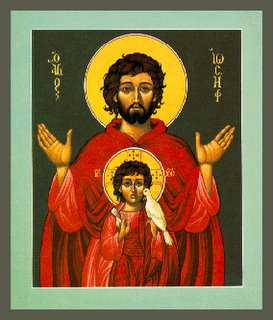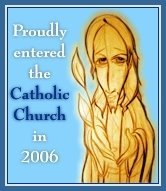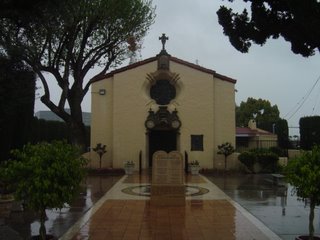Hairshirts and thorn in my side?
It's amazing how much a novel can spread lies about the Church and her people.
I didn't know much about Opus Dei and still don't. However, I believe the Church definitely approves of the lay apostolate. And I also did a little research and will continue to do more. Hopefully this little section off of their website will disprove the hairshirt and thorn theories out there. The title is also linked to their site in order to read the whole response to the Da Vinci code.
3. Opus Dei and corporal mortification
The Da Vinci Code makes it appear that Opus Dei members practice bloody mortifications. In fact, though history indicates that some Catholic saints have done so, Opus Dei members do not do this.
The Catholic Church advises people to practice mortification. The mystery of Jesus Christ’s Passion shows that voluntary sacrifice has a transcendent value and can bring spiritual benefits to others. Voluntary sacrifice also brings personal spiritual benefits, enabling one to resist the inclination to sin. For these reasons, the Church prescribes fasting on certain days and recommends that the faithful practice other sorts of mortification as well. Mortification is by no means the centerpiece of the Christian life, but nobody can grow closer to God without it: “There is no holiness without renunciation and spiritual battle” (Catechism of the Catholic Church, n. 2015).
In the area of mortification, Opus Dei emphasizes small sacrifices rather than extraordinary ones, in keeping with its spirit of integrating faith with secular life. For example, Opus Dei members try to make small sacrifices such as persevering at their work when tired, occasionally passing up some small pleasure, or giving help to those in need.
Some Opus Dei members also make limited use of the cilice and discipline, types of mortification that have always had a place in the Catholic tradition because of their symbolic reference to Christ’s Passion. Many well-known figures in Catholic history have used the cilice or discipline, such as St. Francis, St. Thomas More, St. Padre Pio and Blessed Mother Teresa. The Church teaches that people should take reasonable care of their physical health, and anyone with experience in this matter knows that these practices do not injure one’s health in any way. The Da Vinci Code’s description of the cilice and discipline is greatly exaggerated and distorted: it is simply not possible to injure oneself with them as the book and film depict.
Additional explanation from leading Catholic sources regarding Opus Dei and corporal mortification.
4. Opus Dei and cult allegations
In various places, The Da Vinci Code describes Opus Dei as a “sect” or a “cult.” The fact is that Opus Dei is a fully integrated part of the Catholic Church and has no doctrines or practices except those of the Church. There is no definition or theory – whether academic or popular – that provides a basis for applying the pejorative terms “sect” or “cult” to Opus Dei.
Opus Dei is a Catholic institution that seeks to help people integrate their faith and the activities of their daily life. As a personal prelature (an organizational structure of the Catholic Church), it complements the work of local Catholic parishes by providing people with additional spiritual education and guidance.
Opus Dei was founded in Spain in 1928 by a Catholic priest, St. Josemaría Escrivá, and began to grow with the support of the local bishops there. It received final approval from the Vatican in 1950 and began growing in many countries around the world. Today Opus Dei has roughly 83,000 lay members (over 3,000 in the United States) and 2,000 priests. Several million people around the world participate in its programs and activities, which are conducted in more than 60 countries.
The Da Vinci Code also makes melodramatic assertions that Opus Dei engages in “brainwashing,” “coercion,” and “aggressive recruiting," unfairly trying to tar Opus Dei with the same brush used against groups more deserving of such epithets.
Opus Dei proposes to people to give their lives to God, following a special path of service within the Catholic Church. One’s life can only be given freely, through a decision coming from the heart, not from external pressure: pressure is both wrong and ineffective. Opus Dei always respects the freedom of conscience of its members, prospective members, and everyone else it deals with.
As a manifestation of its beliefs about the importance of freedom, Opus Dei has specific safeguards to ensure that decisions to join are free and fully informed. For example, nobody can make a permanent membership commitment in Opus Dei without first having completed more than 6 years of systematic and comprehensive instruction as to what membership entails. Additionally, no one can make a temporary commitment before age 18, nor a commitment to permanent membership before age 23.
Additional explanation from leading Catholic figures on Opus Dei and cult allegations.










